Mozambique: Terrorists attack military base in Macomia - AIM report
Mozambique: Maputo neighbourhoods hit by flooding after Filipo – photos
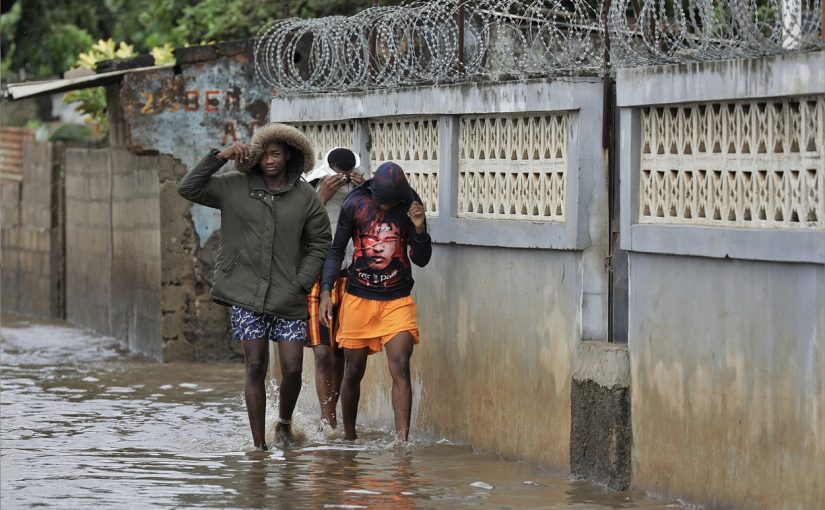
All photos: Luisa Nhantumbo/Lusa
Tropical Storm Filipo left Maputo under water on Wednesday, with several neighbourhoods and hundreds of houses in the capital flooded, affected by gusts that blew away roofs, knocked down trees and left residents in shock during the night.
“We can’t even work in our company, it’s bad here. During the night we don’t even sleep, we sleep outside,” António Macucule, 22, told Lusa, as he carries on his back, for 20 meticais (30 euro cents), anyone who wants to cross – without risking getting wet – the lake that has formed across the street and outside the egg incubator for chicks where he works, in the Choupal neighbourhood, on the outskirts of Porto.
“I’m carrying people because of the water, to help,” he explains, only to say: “It’s never happened before. This time it’s much worse.
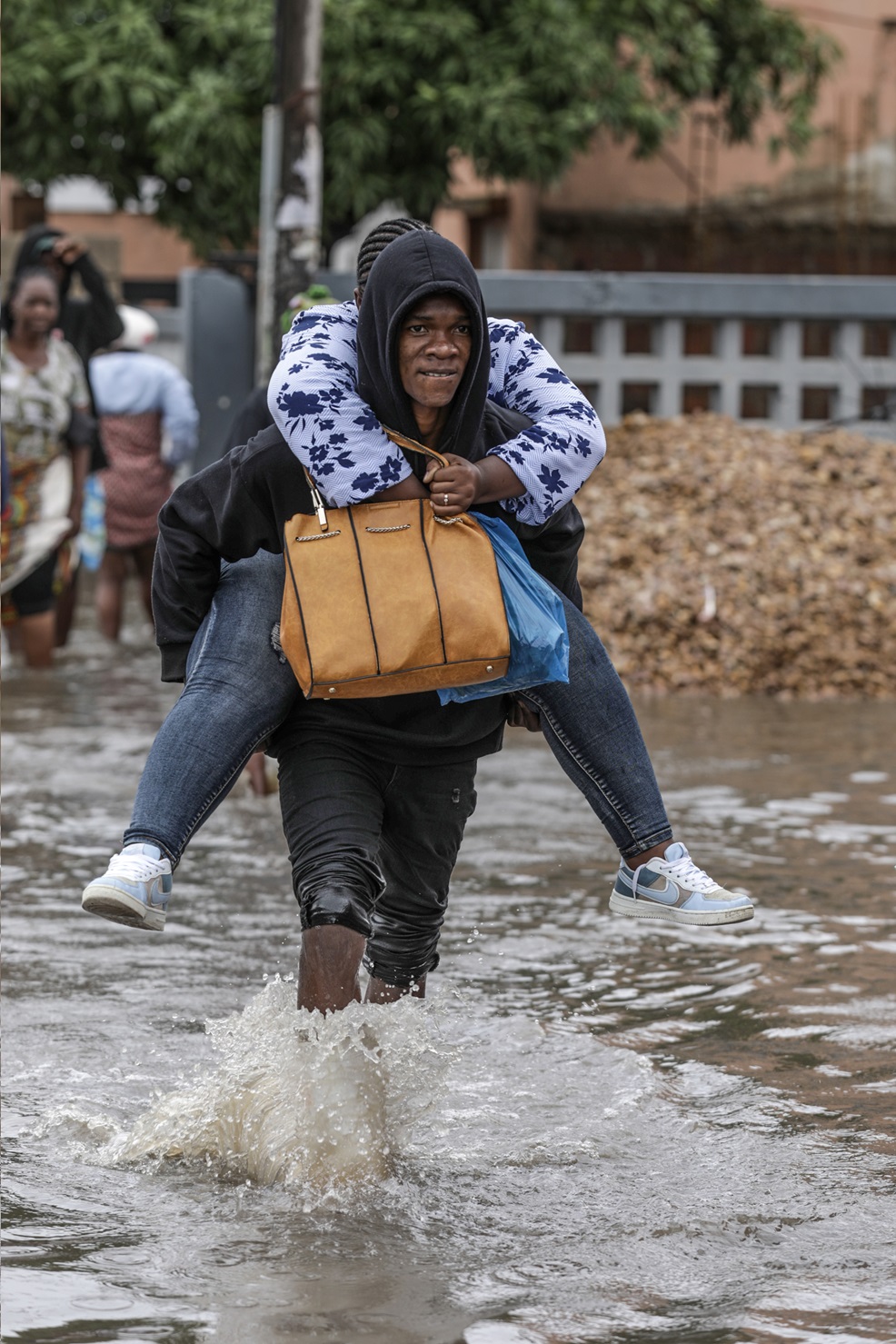
The heavy rain in the early hours of the morning left bumpy dirt roads in several neighbourhoods of the capital completely impassable, with few vehicles literally venturing through, and invaded homes and businesses. It takes arm strength to get the water out of the interior, when possible.
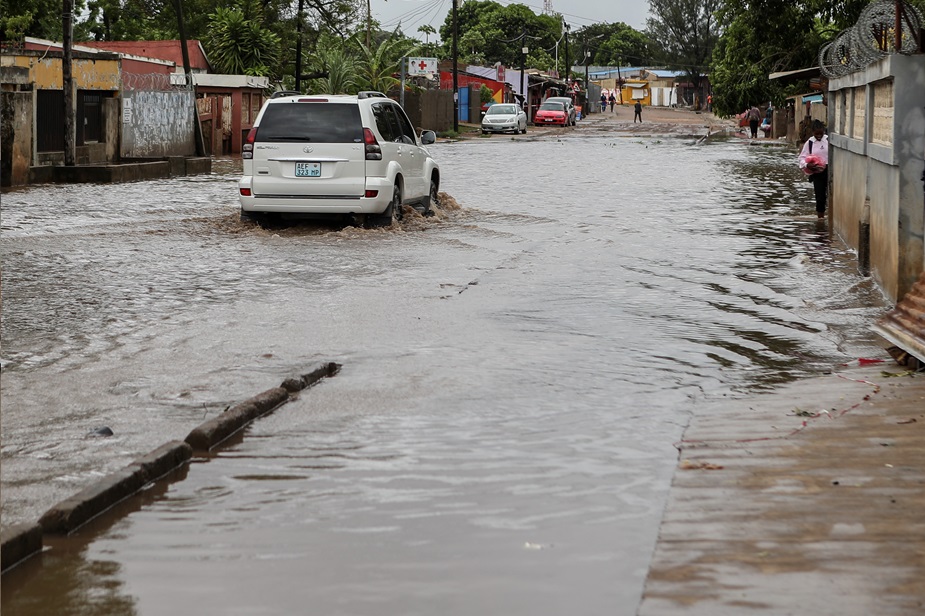
In the Choupal neighbourhood, the hatchery where Hamza Atinai, 22, also works, is out of action and hundreds of chicks are at risk.
“It’s stopped, it’s full of water inside. It’s all a waste, there’s nothing safe,” said the worker, after having tried to enter, until the waist-high water forced him to retreat.
“The chicks are dying anyway,” he laments.
The National Meteorological Institute (Inam) confirmed that the severe tropical storm “Filipo” entered the country at 05:00 (03:00 in Lisbon) on Tuesday, crossing the district of Inhassoro, Inhambane province, heading southwest, namely Maputo, with wind gusts of up to 120 kilometres per hour.
In the capital, the first effects were felt at nightfall. They lasted well into the night, with torrential rain that practically isolated neighbourhoods that were already in poor condition, such as Maxaquene, where the existing ditch was unable to retain the water and overflowed, flooding several dozen houses.
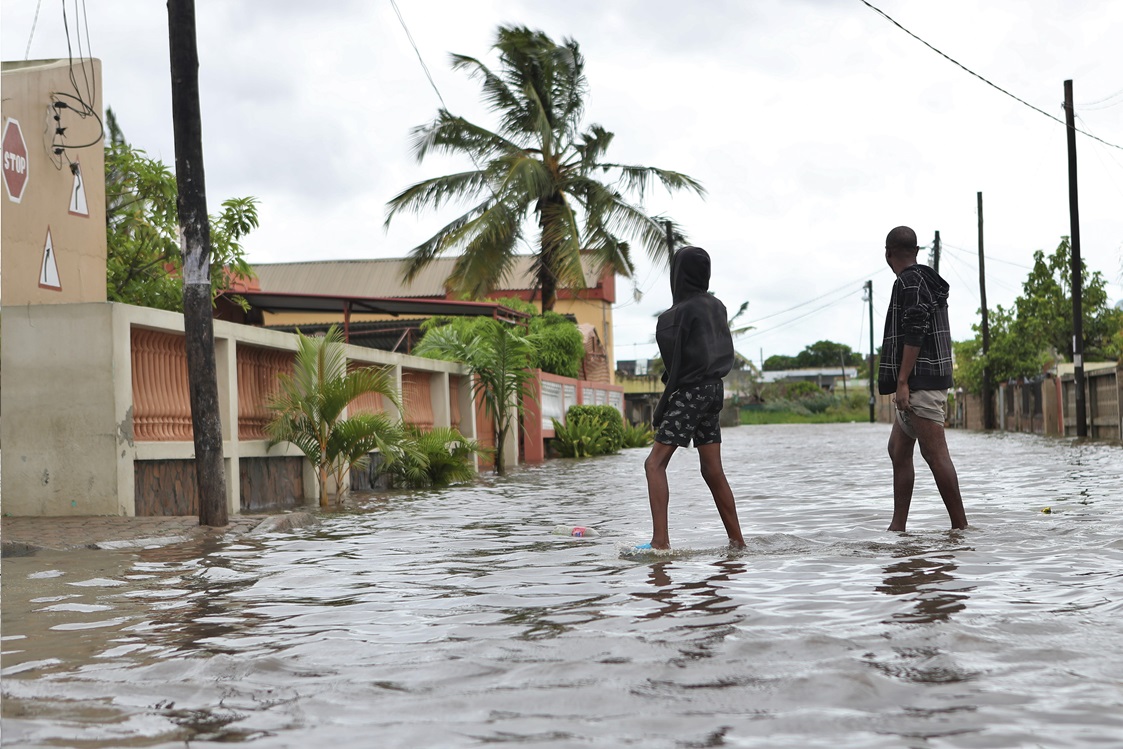
“It was a very difficult night here in the neighbourhood. The water got into the houses. My house was terrible. We had to move everything, beds, sofas, upstairs. The sheets [roofing] also came off,” 16-year-old França Binchelene explained to Lusa after walking past the huge lake that formed in the centre of the neighbourhood and divides it.
Like dozens of other families, in her house, where six people live, there was no sleep, and the night was spent with neighbours. Like Ângelo Salomão, 32, who, in the early hours of the morning, watched a tractor trying to remove water from the street in consecutive journeys and almost without effect, given the quantity, amid the rain that continues to fall and the strong wind.
“It’s worse inside these houses. I don’t even know what to say,” he says, confessing that he spent the night on the street out of fear: “We slept out here (…) it was a terrible night.”
“Many blocks are suffering. The houses, as you can see, are flooded,” she said.
On the other side of an impassable street, where even the tallest vans can’t cross, is Daniel Júnior, 35, who spent the night at his parents’ house, fearing the worst.
“Whenever it happens, I have to be here to give that support because this is chaos. Every time it rains it floods, this ditch can’t cope. Families are left out,” she says, standing next to the barricade of sandbags she put up at the entrance on Tuesday night.
“The water went all the way to the backyard because I had these barricades,” he said.
As well as Maputo, with flooded streets in the city centre and fallen trees, the neighbouring city of Matola, the country’s most populous, also has several roads impassable due to the rain.
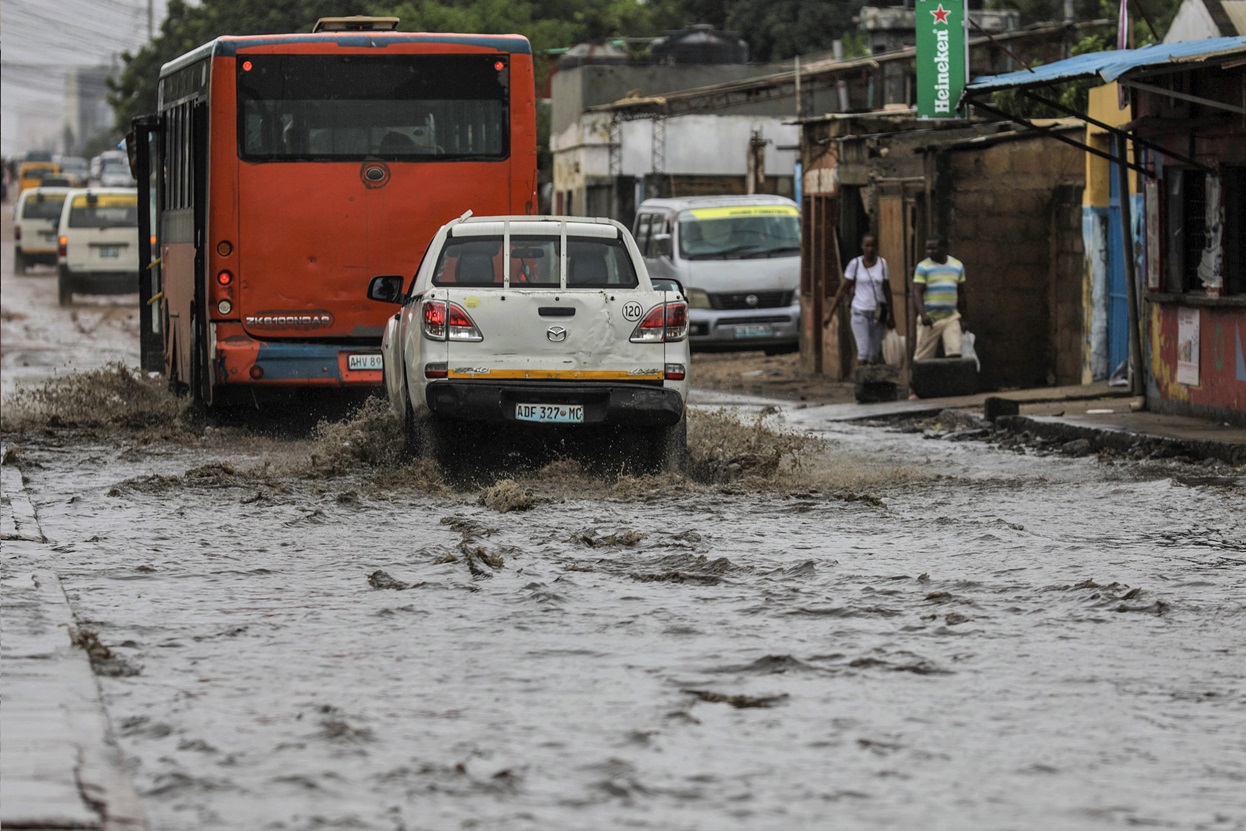
The severe tropical storm “Filipo” partially destroyed 510 houses in the first few hours in Mozambique, affecting 2,780 people, as well as 14 health centres and six schools, with 30 classrooms destroyed, according to a preliminary official assessment.
The report released today by the National Institute for Risk Management and Reduction (INGD) states that in the first few hours, up to 18:00 (16:00 in Lisbon) on Tuesday, Vilankulo, in Inhambane province, was the town most affected by the heavy rains and wind gusts of storm “Filipo”, with 1,450 people affected, followed by Morrumbene (1,000).
The authorities estimate that around 525,000 people could be affected by storm Filipo, between the provinces of Sofala in the centre of Mozambique, Inhambane, Gaza and Maputo in the south.
Mozambique is considered one of the countries most severely affected by climate change in the world, facing cyclical floods and tropical cyclones during the rainy season, which runs from October to April.













Leave a Reply
Be the First to Comment!
You must be logged in to post a comment.
You must be logged in to post a comment.